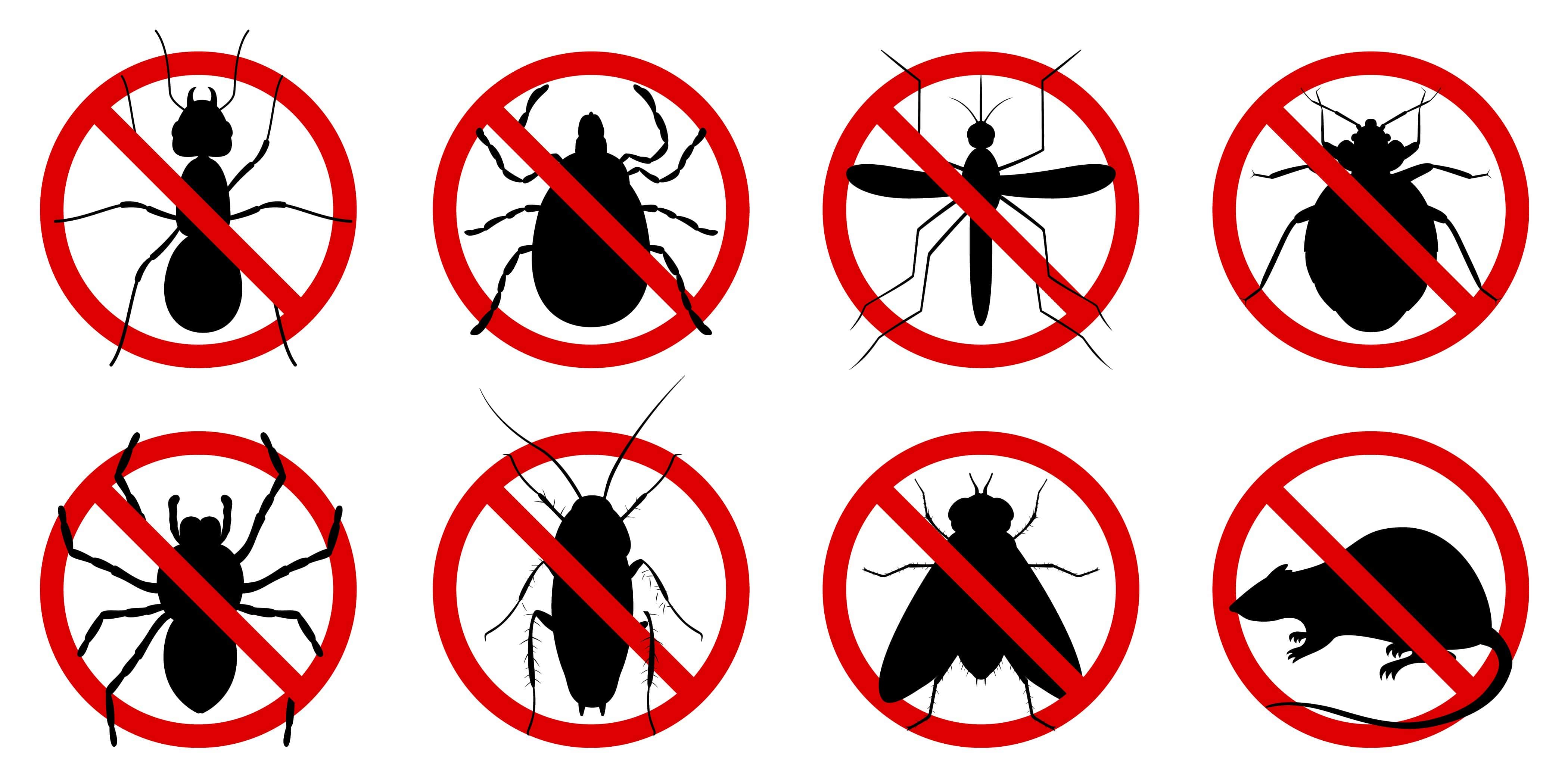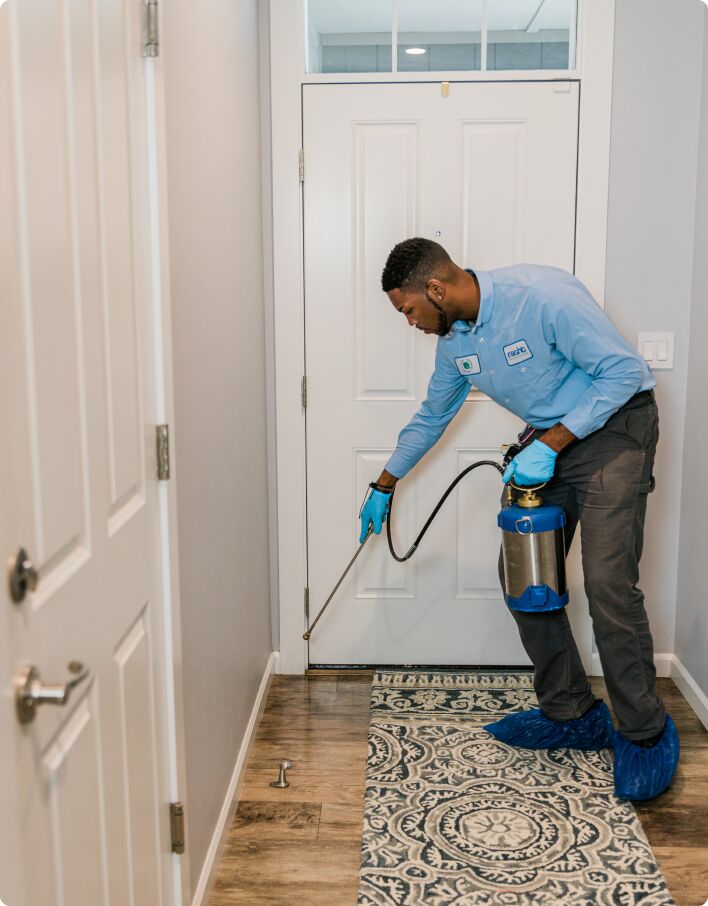Ultimate Guide to Parasite Control: Kinds, benefits, and methods
Insect control is an essential element of preserving a healthy and risk-free environment, whether it be in household, commercial, or agricultural setups (Pest Control Homestead). Understanding the benefits, methods, and types of pest control methods can substantially impact the performance of pest monitoring approaches. By checking out the diverse series of techniques readily available, one can tailor pest control efforts to certain requirements and obstacles, ensuring a comprehensive and sustainable service. The world of parasite control is multifaceted, with numerous devices and approaches at one's disposal.
Value of Insect Control
Insect control plays an essential duty in preserving the health and safety and security of both household and commercial atmospheres. By properly taking care of and eradicating companies, bugs and individuals can stop the spread of conditions, secure home from damage, and guarantee a hygienic and clean living or working area. Bugs such as rats, termites, and bugs can present major health dangers to people and animals by infecting food, transferring illness, and triggering allergies. Additionally, bugs can trigger structural damage to buildings and framework, resulting in expensive repairs and possibly compromising the safety of passengers.
Implementing normal bug control measures not only safeguards the physical health of individuals but additionally contributes to their mental well-being by producing a secure and comfortable atmosphere without the problems and disruptions brought on by bugs. Additionally, in commercial settings, pest control is essential for maintaining a positive reputation, following health and wellness guidelines, and protecting the wellness of workers and customers. Generally, the relevance of bug control can not be overemphasized in preserving the health, security, and overall high quality of life in both business and residential spaces.
Typical Pest Control Methods
Offered the critical role that pest control plays in protecting health and wellness and home, it is necessary to explore effective methods for handling and removing pests. Common insect control methods encompass a range of methods customized to specific pest types. Physical methods entail the usage of catches, barriers, or nets to stop pests from entering or to capture them. Biological control utilizes natural killers or pathogens to regulate insect populaces, lowering the need for chemical interventions. Chemical control, such as chemicals, is widely made use of but needs careful application to reduce environmental influence. Additionally, integrated parasite monitoring incorporates numerous techniques to attain lasting parasite reductions while reducing dangers to human health and wellness and the ecosystem. Social strategies, like proper waste administration and keeping tidiness, also play an important role in insect prevention. Ultimately, the most reliable pest control strategy usually entails a combination of techniques tailored to the specific bug varieties and the setting in which they reside.

Organic Pest Control Approaches
When thinking about environmentally-friendly approaches to handling insect populations, organic insect control methods supply a lasting solution. One usual natural bug control method is biological control, which includes introducing all-natural killers, parasites, or microorganisms to control insect populations.
Another efficient natural parasite control approach is the usage of natural pesticides originated from natural sources such as minerals, bacteria, or plants. These pesticides target certain parasites while reducing damage to valuable insects and the ecological community. Neem oil, as an example, is a prominent organic chemical that interferes with the growth and recreation of various insects without creating injury to various other organisms.
Cultural methods like crop rotation, friend growing, and preserving proper plant health also drop under organic parasite control techniques. By creating a well balanced ecological community and reducing bug vulnerabilities, these practices aid stop bug infestations without the requirement for harmful chemicals. Organic pest control methods not only safeguard the environment however likewise advertise sustainable and long-lasting parasite administration services.
Kinds of Bug Control Services
Thinking about the varied techniques offered for managing bug populations, an essential element to explore following is the series of services supplied under the umbrella of insect control. Pest control solutions can he said be generally categorized right into 3 main kinds: household parasite control, commercial parasite control, and integrated insect management (IPM)
Residential bug control services focus on managing and eliminating parasites frequently found in homes, such as ants, rats, cockroaches, and termites. These services frequently involve the application of safe yet efficient therapies to safeguard the wellness and safety of citizens.

Integrated Parasite Management (IPM) takes a holistic method to pest control by integrating biological, social, physical, and chemical methods to take care of insect populations properly while lessening risks to human health and wellness and the setting. IPM concentrates on long-term avoidance and sustainable parasite management practices.
Integrated Insect Management Approach
An integrative method to pest administration, called Integrated Pest Monitoring (IPM), incorporates different strategies to properly regulate pest populaces read what he said while minimizing dangers to human health and the setting. Pest Control Homestead. IPM concentrates on avoiding pests via a mix of organic, social, physical, and chemical control approaches. By utilizing an alternative technique, IPM intends to attend to the origin of insect invasions as opposed to just dealing with the signs
One trick facet of IPM is using organic controls, such as introducing natural killers or microorganisms to handle bug populaces. This method minimizes the dependence on chemical pesticides, thus lowering the general ecological effect. Social controls involve modifying the parasite's habitat to make it less welcoming, while physical controls consist of the usage of traps or barriers to leave out or record pests.
IPM also emphasizes tracking and normal assessment to assess pest degrees accurately and identify one of the most ideal control methods. By integrating these diverse methods, IPM uses a reliable and lasting technique to pest administration that advertises long-term services while protecting human wellness and the ecological community.

Final Thought
In final thought, parasite control is necessary for preserving a healthy and balanced and risk-free setting. By using different strategies such as organic approaches and incorporated pest administration, people can effectively stop and handle bug infestations. Various kinds of insect control solutions are readily available to cater to details needs and preferences. Generally, carrying out correct insect control measures can aid secure residential or commercial property, plants, and human health from the harmful effects of bugs.
Comprehending the advantages, methods, and types my response of parasite control approaches can significantly influence the effectiveness of pest administration techniques. Usual pest control strategies incorporate an array of techniques customized to particular insect types. One common organic pest control method is organic control, which entails presenting all-natural killers, bloodsuckers, or microorganisms to regulate pest populations.An integrative method to pest monitoring, known as Integrated Parasite Administration (IPM), combines different approaches to efficiently control pest populations while minimizing threats to human health and wellness and the atmosphere. Social controls involve modifying the insect's environment to make it less congenial, while physical controls include the usage of barriers or catches to exclude or record bugs.